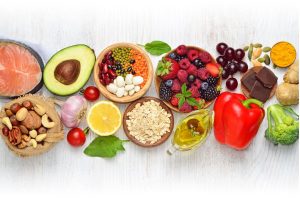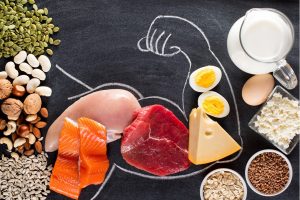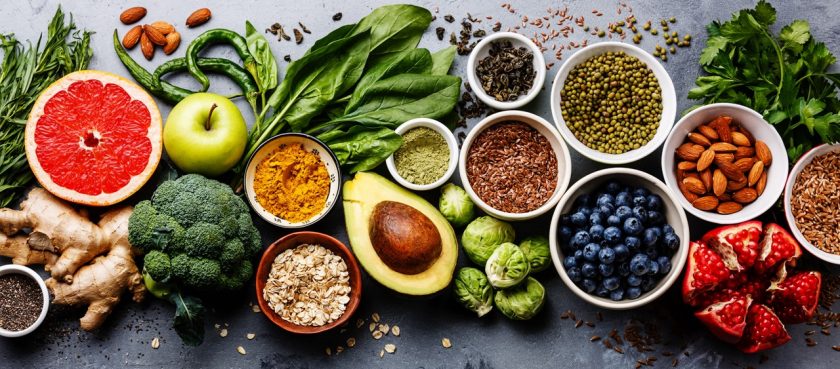
Are you Looking To Recovery Faster From Your Recent Injury? This May Help!
Having an injury can often lead to plenty of pain as well as not being able to do the things you enjoy. Everyone wants to recover as soon as possible. Maybe your lower back pain treatment or your shoulder bursitis treatment strategies aren’t quite cutting it? For many injuries, Physiotherapy can help you speed up this process without jeopardising your complete recovery. One aspect of recovery that often gets over looked is what you eat. It is common that people who are in pain and mad that they can’t do the activities that they would like will slip in their eating habits. Chocolate, lollies, chips and alcohol are sometimes eaten more often for some added pleasure to offset the pain you are in. Sometimes that is ok, but did know that your recovery can be negatively impacted by poor nutrition or improved with good nutrition?
- In some injuries requiring a hospital stay, research has shown that individualised nutrition plans can reduce hospital stays by an average of 4.8 days! (KLEMM 2016)
- Simone Austin, Advanced Sports Dietitian (and President of Sports Dietitians Australia.) was gracious enough to provide some great general insights below into some of the key nutritional considerations when managing injuries (for athletes and the general active population alike).
- Nutrition, particularly in the athlete population, requires an individualised approach. This blog post therefore is general in nature and it is always recommended to seek the advice of an SDA accredited sports dietitian.
After An Injury, Reduced Training Load/Activity Will Occur
When injuries occur training and activity levels decline which can lead to:
-
- Muscle mass loss
-
- Reduced energy/kilojoule intake
-
- Reduced micronutrient intake
-
- More time on your hands
-
-
-
- Eating out of boredom
- Socially eating out more
- Alcohol intake may increase
-
-
Nutrition Basics In Injury Management
When determining the nutrients that should fill your plate, a guide for the average Australian is:
-
- 50% vegetables,
-
- 25% carbohydrates
- 25% protein.
- When this is achieved, vitamins, minerals, protein and carbohydrates are being consumed to fuel the body as well as help injuries and prevent injuries.
Protein Requirements After an Injury. Do We Need More?
Protein helps to maintain muscle mass.
- You will need more protein as you age
-
-
- After age of 30 your muscle mass starts to decline
- Athletes, older people, pregnant, sick, wounds, injuries need more protein than a regular person
-
- Spread protein out over the day
-
- ~20g each meal/snack
- 6g protein= 30g meat (match box size)
- 10g protein= 250ml milk (1 cup)
- 6g= 1 egg
Fruits After An Injury. Do We Need Them?
- About 2 serves of fruits per day is recommended
-
- Fruit contains many vitamins and minerals that help the healing process:
- Vitamin C
-
-
-
- Boost immune system
-
-
- Vitamin A
-
-
-
- Important for repair
-
-
- Folate
- Fibre
-
-
- Feeds gut bacteria which helps to
- Inflammation reduction
- Important for bowel health to decrease constipation that may be caused by painkillers
- Feeds gut bacteria which helps to
-
- Fruit Platters are a great idea to increase fruit content
- Fruit Drinks do not make up for consumption of fruit
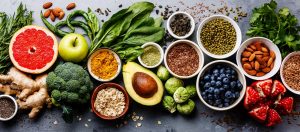
Vegetables After An Injury. How Much Do We Need?
Vegetables provide antioxidants which help enzymes to speed up reactions, which are increased when injured.
- 93% of Australians are NOT eating the recommended 5 serves of vegetables per day
-
-
- 1 cup of Salad = 1 serve
- ½ cup of Cooked Vegetables = 1 serve
- 75g of Legumes= 1 serve
-
- Increased fibre
- Important for bowel health to decrease constipation that may be caused by painkillers
- Increased Prebiotic Fibres for Gut Health
-
-
- Asparagus
- Onions
- Garlic
- Green Leafy Vegetables
- Serotonin can be increased through looking after gut health which is Happy Hormones
-
Micronutrients: Do They Matter For Healing?
The micronutrients of Zinc, Vitamin C and Vitamin A are very important in injury prevention and healing:
- Zinc
-
- Needed for enzymes involved in protein turnover & therefore tissue healing. We can find them in:
-
-
-
- Seafood
- Whole grains carbohydrate
- Nuts
- Red meat
- Animal products
- Vegetables
-
-
- Vitamin C
-
- Helpful in healing/ collagen formation. We can find them in:
-
-
-
- Citrus fruits
- Dark green vegetables
- Rockmelon
- Strawberries
- Kiwi fruit
- Potatoes
-
-
- Vitamin A
-
- Stimulates macrophages for healing in cells. We can find them in:
-
-
-
- Liver
- Egg yolks
- Dairy products
-
-
-
- In Beta-Carotene Form
-
-
- Yellow, orange and dark leafy green vegetables and fruits
-
- Carrots
- Sweet potato
- Tomatoes
-
- Yellow, orange and dark leafy green vegetables and fruits
-
- Think FOOD over individual nutrients
-
-
- Eat more fruit and vegetables to get important micronutrients
- Additive effect over whole diet
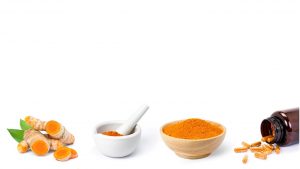
-
Bone Injuries. What Do We Need When We Break A Bone?
Often injuries are related to bones and weak bones are more likely to break. We often think of dairy to keep the bones strong however there are alternatives as well. Soy milk is a good alternative, however it is important that there is added calcium
What Do Bones Need For Healing?
- Protein
- Calcium
-
-
- Dairy, broccoli, sesame seeds, fortified milk alternative, bones of canned fish
-
- Vitamin D
-
-
- Sunshine 20-30minutes, sardines, mackerel, fortified milk, eggs, liver
-
- Vitamin K
-
-
- Green leafy vegetables, some in fish, meat, eggs
-
- Phosphorus
-
-
- High protein foods e.g. dairy, nuts, legumes, meat
-
- Magnesium
-
- Green leafy veg, nuts, seeds, seafood, legumes
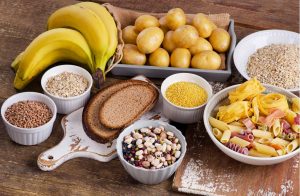
Do I Need To Eat Fats After An Injury?
It is important to consume fat for injury prevention and healing, but the right types of fats.
- What type are good to consume?
-
- Extra virgin olive oil 50ml per day- anti inflammatory effect
-
-
-
- On bread, in salad, roasting, BBQ, in baking, on vegetables
- Has similar effect to 10% adult dosage of Ibuprofen
- Oleic acid can reduce C-reactive protein
-
-
-
- Avocado
-
- Nuts, seeds
-
- Whole foods
-
- Avoid
-
-
-
- Trans Fats
- Old oils
- Excess saturated fats
- Fats in highly processed foods
-
-
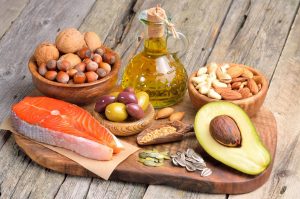
Thank you again to the President of Sports Dietician Australia for the helpful guidelines.
Nutrition, particularly in the athlete population, requires an individualised approach. This blog post therefore is general in nature and it is always recommended to seek the advice of an SDA accredited sports dietitian.
If you have an injury and would like to get started on your recovery then click on the book now button below to book an appointment with our team.
Book an Appointment Now

